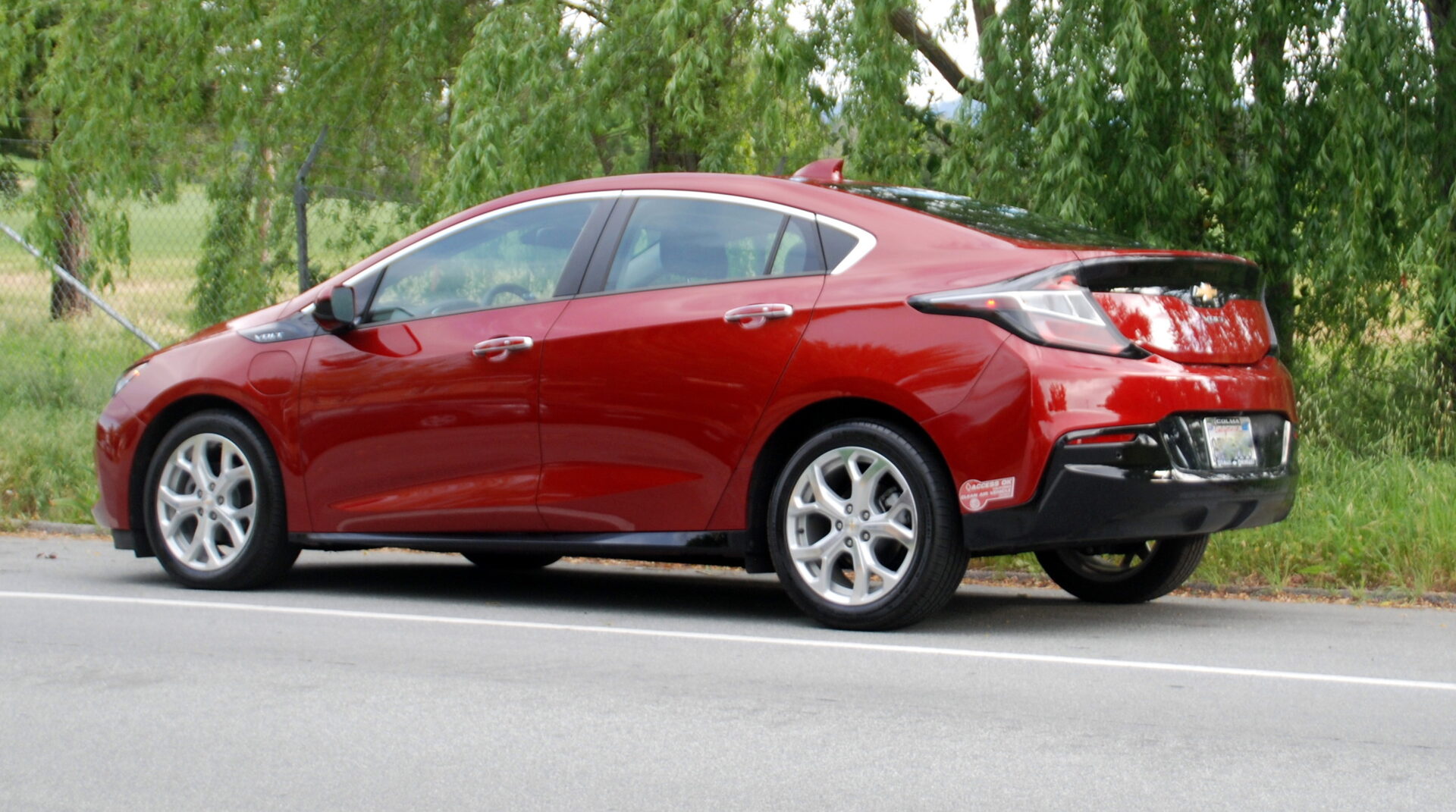California’s the First State to Hit One Million EVs
And I’m one those million since they’re counting plug-in hybrids (PHEVs) as well as full battery electrics. I think that’s fair since on a good day my 3 ½-year-old Chevrolet Volt has a 61-mile all-electric range, roughly comparable to a used Nissan Leaf or Fiat 500e. On top of that, I’m currently running at 80+% electric miles. My lifetime tally is 231 mpg, which means I’ve used less than 80 gallons of gas over the car’s 42 months on the road.

California’s plug-in vehicle sales tally is impressive:
- 663,014 battery electrics (62.9%)
- 379,125 plug-in hybrids (26%)
- 11,956 fuel cell electrics (1.1%)
If you’re adding up the numbers that 1,054,095 electric vehicles since the state began counting in 2011. That also means the state is one-fifth of its way towards a goal of five million EVs by 2030. If EV adoption continues on its current trajectory, it would be an easy goal, but keeping growth on the existing steep curve is highly unlikely. In fact, it might not even be possible for the auto industry to produce that many EVs, although the rate of expansion is dizzying.
Behind the Numbers

The California mix for 2021 was interesting, with many of a few vehicles and a few of many. Sales just topped a quarter-million with Tesla’s four models accounting for more than half of the overall sales. The EV’s homes are as might be expected, in the more populous and wealthier pockets of the San Francisco Bay Area and sprawling Los Angeles region stretching down to San Diego.
The cars Californians choose set the tone for EV sales for 2021. Here’s the top 10 and their sales (and links to our latest reviews/news):
- Tesla Model 3 EV – 67,262
- Tesla Model Y EV – 61,022
- Toyota Prius Prime PHEV – 14,275
- Chevrolet Bolt EV – 12,313
- Toyota RAV4 Prime PHEV – 7,988
- Tesla Model S EV – 6,532
- Ford Mustang Mach-E EV – 5,807
- Volkswagen ID4 EV – 5,293
- Jeep Wrangler 4xe PHEV – 4,427
- Nissan Leaf EV – 4,192
The good news about the list of EV and PHEV sales from last year is there were 86 models listed, though several were cars that have gone out of production (like my Chevy Volt) but still managed to have a few laggards left for sale. Those leaving the list are being replaced by new models at a quickening pace, which is why 2022 is looking like such an exciting year.
California, the original home of Tesla—and many of the start-ups like Lucid and Rivian that are beginning to contribute to the growth of EVs—leads the way in plug-in car registrations. It has eight times the number of EVs of the next state, Florida.
The Role of Rebates

Part of how California got to its million-EV position is by offering substantial rebates to purchasers of new EVs. The role of rebates has been hotly debated. It should be noted that three of the top four selling models of the year were not eligible for California’s state rebate. Tesla and GM both exceeded the state’s 200,000-unit sales cap on rebates. Nissan and Ford are expected to follow shortly. Buyers could still receive federal tax credits and local incentives if available.
Would I have bought my Volt without the rebate? Yes, but I’m someone who is quite committed to the EV pathway, and able to afford the slightly higher ticket that most EVs carry. In the earlier days, the incentives were a big part of Tesla’s early market success, which was the intent of the program. The backlash (tax dollars supporting Silicon Valley millionaires—both the buyers of the Teslas and the company founders) has altered the program.
I view 2022 as the watershed year. The number and variety of plug-in vehicles is reaching a high point. Interest appears to be peaking and prices are holding steady or dropping for all but the outrageous luxury models. The number of EVs in my neighborhood seems to be growing weekly. Hold onto your charge plug, it looks like it’s going to be another great year.
Story & photos by Michael Coates.
Make sure to opt-in to the Clean Fleet Report newsletter (top right of page) to be notified of all new stories and vehicle reviews.
